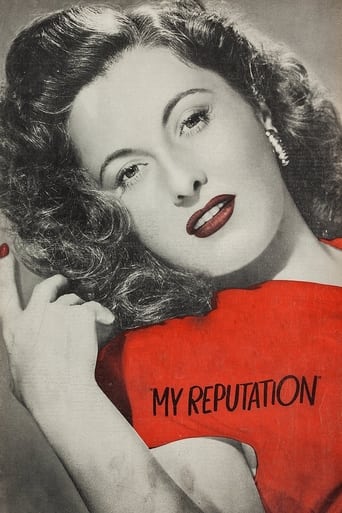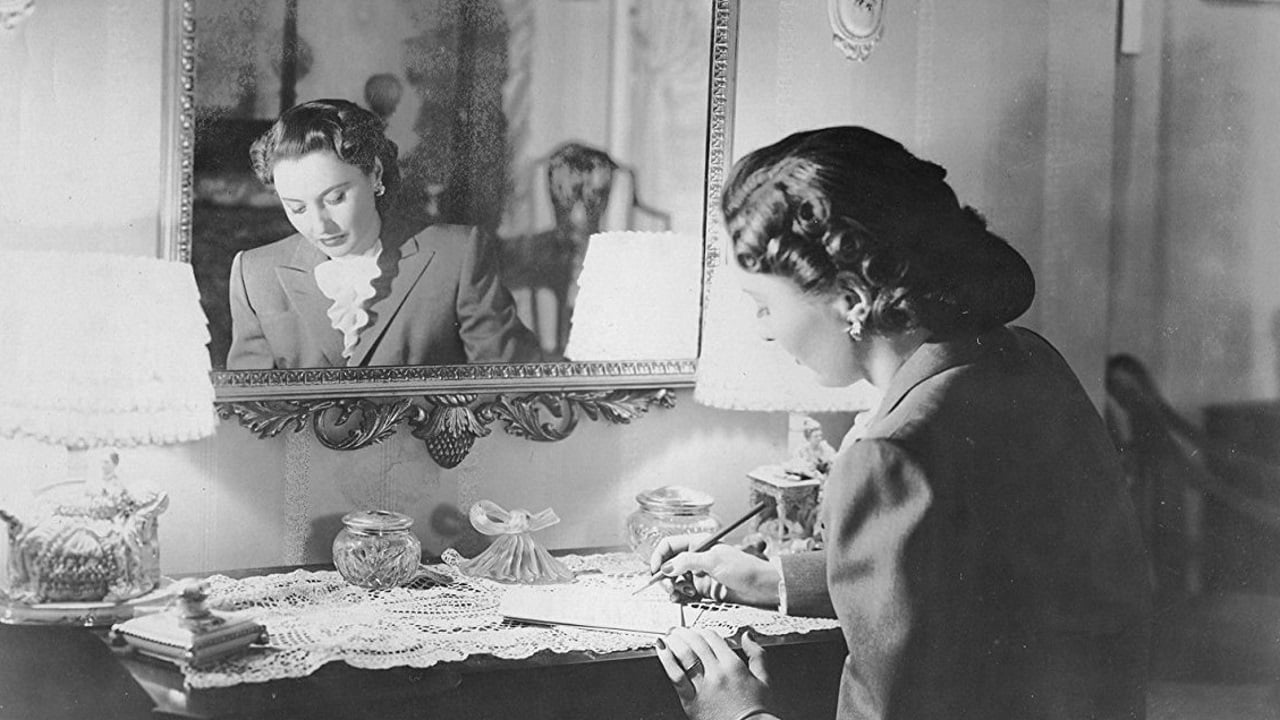jarrodmcdonald-1
This was Stanwyck's personal favorite of all the films she made during her long motion picture career. And I think the reason this was the actress' favorite (merely speculating) is the great scene where she tells off the snooty society woman at the New Year's party. Wow--it has all the toughness that Stanwyck does so well in her best roles. I wanted to stand up and applaud her when that scene finished playing. I am sure she enjoyed filming that, because she is truly on fire like only Stanwyck can be.With regards to the rest of the cast: Lucile Watson turns up as the "cranky old-school mother" with her own definition of mourning. Trying to tell her daughter how to grieve is one of the high points, and makes her the arch villain of the piece. And she plays it perfectly.As for the kids-- a little too baby-faced, but in a way it shows how they are still vulnerable and still need their mother and grandmother. The scene where the women see the boys off at the train station earlier in the picture was poignant and heartbreaking without going over the top.Eve Arden is stellar in her supporting role as the best friend. I also like Warner Anderson's underplayed lawyer that should logically be the man Stanwyck turns to after the husband's death. And of course, Esther Dale, as Anna the housekeeper. The part where Jessica (Stanwyck) asks Anna to have dinner with her was another touching scene. This is a wonderful film with so many excellent moments.
mark.waltz
Let's here it for Barbara Stanwyck! The former Stella Dallas gets her grove back as Jessica Drummond in this war era women's picture about a lovely widow who wakes up to discover that she still has it. Having been dominated by her old school mama (Lucille Watson) and pampered by her late husband, she has to wake up and smell the martinis, which she admits, like anchovies, are an acquired taste. All of a sudden after a liberating skiing trip with pal Eve Arden and her husband (John Ridgely), she meets Army officer George Brent on the slopes. Bashful with eyes avoiding the bedroom, Stanwyck slowly wakes up, after spending the holidays with Brent and friends until pesky Watson interrupts. Stanwyck must discover herself in spite of the regulation of her café society past and stand up for what she really wants while keeping her self-respect, if not her old reputation.Stanwyck was at the height of her leading lady status when she made this in 1944 (held back for two years, although it was shown to men in the military) and the highest paid woman in America. This is also one of her most subtle performances, sweet yet honest about herself, devoted to her two sons, and tired of all the B.S. of society. Brent, a frequent Stanwyck leading man, goes well with her like butter does with bread, and is, as always, likable even if pain in the butt mother Watson thinks he's of the devil. The highlight of the film are the scenes between Stanwyck and Arden (their only film together!) which really shows what a real female friendship should be about. A bedroom scene with Arden and Ridgely (no double beds for this one) somehow slipped past the censors and features some amusing pillow talk. It's not just the bitter old ladies like Watson and her uppity friend Cecil Cunningham who gossip, but Stanwyck's supposed friends as well, which results in a scene with the strong Stanwyck we all have come to expect to finally explode. The conclusion between Stanwyck and her sons is appropriate for the time of war, if not satisfactorily in the romantic sense, it still holds promise and hope, and considering America was still at war when this was made, that is conclusion enough.
marcslope
Wartime soap-romance with Stanwyck, and she's excellent even by her own lofty standards, as a young Chicago widow with children whom the Lake Shore Drive set doesn't know what to do with. Her pompous mama, an amusing Lucille Watson, and her two sensible sons want her to be a conventional widow. Then she meets George Brent... The mid-century problem of what role a woman without a man is supposed to play is dealt with with some insight, and it must have resonated mightily in 1946, with so many women thrust into this unfamiliar territory. Brent, so handsome in his youth, was by this time puffy and artificial-looking, and isn't an ideal love object. Nor is Eve Arden given enough to do in a conventional best-pal role. But Stanwyck's so graceful and sturdy, and the Warners production so assured, that you stick with it and root for the pair to triumph over their gossipy milieu. It ends pretty abruptly and not altogether convincingly, but there are many good scenes along the way, and we sure do love Babs.
BumpyRide
I'm sure that both Bette Davis and Joan Crawford must have passed on this script. This vehicle seems right up Crawford's alley, but to play a widow with two boys in prep school, certainly would not have appealed to her. Stanwyck, while doing a fine job, seems out of place in this Warner production. All the production values are there (including practically every stock player that Warner's had under contract) but I couldn't get passed Joan Crawford's presence that seemed to echo throughout the film. Perhaps this is somewhat dated material for I couldn't see why anyone would raise a well penciled eyebrow for her "dating" a service man, during WWII no less. Of course this material would be revisited with "All That Heaven Allows', with Jane Wyman dating a younger man instead of a service man. A nice time capsule of a movie.


 AD
AD



